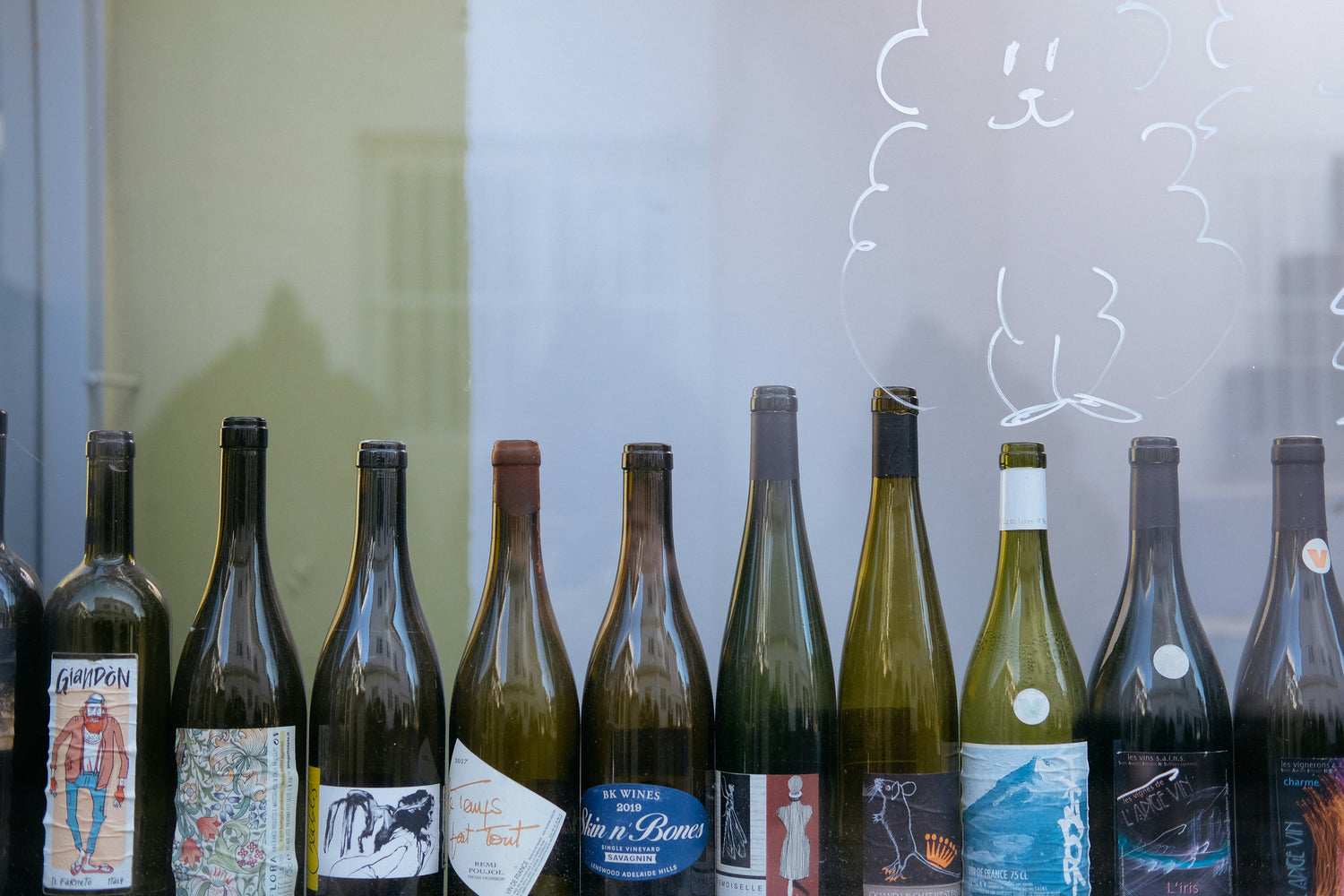
36 Science-Backed Benefits of Drinking Natural Wine: Your 2025 Health Guide - Part I
gregory Kinsman-ChauvetShare
Natural wine sales continue to soar, with a 13.8% year-over-year growth as people look for healthier drinking options. Wine's benefits extend far beyond the simple enjoyment it offers. Recent research shows exciting positive effects on our health.
Natural wines have a significantly lower sulfite content, ranging from 30 to 40 parts per million, compared to conventional wines, which typically contain 350 ppm. These low-intervention wines contain potent antioxidants, such as resveratrol and polyphenols, that shield our bodies from oxidative stress and inflammation. Scientific studies have shown that these compounds can lower blood pressure, reduce levels of bad cholesterol, and prevent blood clots from forming.
The human body processes natural wine in unique ways. Research shows it guides us toward lower blood alcohol concentration than conventional wine, 0.52 versus 0.56. Natural wine fermentation produces beneficial bacteria that function as probiotics, supporting the health of our digestive system.
Centenarians and Daily Wine Habits

Image Source: Blue Zones
The longest-lived people share an unexpected daily habit—they drink wine regularly. All but one of these Blue Zones (regions where people live past 100) incorporate moderate wine consumption into daily life.
Blue Zone Wine Consumption Patterns
Studies reveal that moderate drinkers live longer than non-drinkers. Sardinia's Blue Zone has an impressive number of centenarians. The locals drink Cannonau wine, a regional red wine rich in antioxidants. This wine covers over 27% of Sardinia's vineyard area (7,385 hectares as of 2020).
Blue Zone residents follow what experts call the "Wine @ 5" principle:
- Drink 1-2 glasses daily (one for women, two for men)
- Share wine with meals and friends
- Pick high-quality wine (preferably red)
- Avoid saving drinks for weekend binges
Dan Buettner, who explores Blue Zones, notes that "People in all Blue Zones (except Adventists) drink alcohol moderately and regularly". A survey revealed that over 90% of people living past 90 enjoyed wine every day.
The Oldest People on Earth and Their Wine Rituals
Sardinian shepherds walk miles each day to tend their flocks. They carry simple lunches of bread, beans, cheese, and plenty of local Cannonau wine. Julie Iverson from England lived to be 108 and swore by her daily glass of red wine. She could tell right away if her caregivers tried to water it down.
Maine's Florence Bearse made her feelings clear on her 100th birthday: "I like my wine. Don't take it away from me". Eileen Ash from Norwich reached 105 and credited her longevity to two glasses of red wine daily.
Science supports these claims. Research shows that wine consumption paired with exercise helps protect against cardiovascular disease. Studies also suggest that drinking low to moderate amounts of wine can add about five years to life expectancy.
Red Wine and Heart Disease Prevention

Image Source: MDPI
Red wine does more than help centenarians live longer - it remarkably affects heart health. People who drink about 150 ml (5 oz) of red wine daily have a substantially lower heart disease risk than non-drinkers. This follows a J-shaped relationship between wine intake and heart disease risk.
Polyphenols and Cardiovascular Protection
Your heart gets protection from powerful plant compounds called polyphenols found in red wine. These include resveratrol, catechin, epicatechin, quercetin, and anthocyanins. These compounds work together to shield your heart through several mechanisms:
- Blood vessel linings stay protected from damage
- They reduce harmful LDL cholesterol oxidation by up to 50%
- HDL ("good") cholesterol levels remain healthy
Quercetin is a free radical scavenger, stopping LDL oxidation and preventing plaque buildup. Many scientists believe that red wine's enhanced heart protection compared to other alcoholic drinks comes from these polyphenols.
Research on Red Wine and Heart Health
Moderate red wine drinkers consistently show lower heart disease risk in studies. A significant research followed 490,000 U.S. adults over nine years. The results showed that people who had at least one alcoholic drink daily were 30-40% less likely to die from cardiovascular disease.
Danish research revealed that wine drinkers (8-21 drinks weekly) received better protection against heart disease than beer or spirit drinkers. This points to wine's special properties beyond alcohol content.
A newer study published in 2023 by researchers challenges these findings. Their work shows no cardiovascular benefit from alcohol. They found that even one drink daily might increase the risk of high blood pressure and irregular heart rhythm.
Optimal Consumption Amounts
Moderation remains essential to get heart health benefits without risks. Scientists agree on these guidelines:
- Women: 1 glass (5 oz/150 ml) daily
- Men: Up to 2 glasses daily
- Older men (65+): 1 glass daily limit
Drinking more than these amounts can harm your heart. This is a big deal as it means that excessive consumption leads to high blood pressure, arrhythmias, or even toxic damage to heart muscle cells. People looking for heart benefits without alcohol can try dealcoholized red wine to lower blood pressure.
White Wine and Lung Health Benefits

Image Source: MDPI
Red wine's heart benefits are well known, but white wine might do more good for your lungs. A recent study, published by the University of Buffalo and involving 1,555 people, found that white wine drinkers had healthier lungs than those who drank red wine, beer, spirits, or no alcohol at all.
Antioxidants Unique to White Wine
White wine has fewer polyphenols than red varieties but protects the lungs better. This finding puzzled scientists because red wine's higher antioxidant content should theoretically provide greater health benefits.
Notwithstanding that, research shows white wine contains unique nitrogen- and sulfur-containing compounds with the most essential antioxidant properties. These compounds work as "sacrificial nucleophiles" that trap harmful molecules called quinones during oxidation. This process:
- Prevents browning and loss of wine flavours
- Protects lung tissues from oxidative damage
- Helps maintain healthy lung function over time
I love that white wine shows antioxidant capacity equal to or greater than red wine for certain health metrics, despite having lower phenolic content.
Respiratory System Protection
Recent and lifetime white wine intake strongly relate to improved FEV1 (forced expiratory volume) and FVC (forced vital capacity) - key respiratory health measurements based on lung function tests.
White wine consumption benefits smokers particularly. Research suggests that white wine might be the quickest way to detoxify harmful molecules from cigarette smoke that increase oxidative stress in the lungs. Smokers show this protective effect more clearly than non-smokers.
White wine seems to lower the risk of developing abnormally low FEV1 and FEV1/FVC ratios - both indicators of moderate COPD (Chronic Obstructive Pulmonary Disease). More studies show that low to moderate wine consumption helps slow down lung function decline associated with COPD.
Dr. Holger Schünemann, who led the Buffalo research, stated: "We think that the antioxidants in wine account for our current findings". This doesn't mean heavy drinking helps, but moderate white wine consumption could help maintain lung health as we age.
Rosé Wine and Skin Health

Image Source: MDPI
Rosé isn't just a pretty drink in your glass - it can help you achieve healthier skin. The way rosé is made, with red grape skins briefly touching the juice, creates a drink packed with skin-loving benefits.
Anti-Aging Compounds in Rosé
Rosé contains resveratrol, a plant compound that fights aging. While it has less resveratrol than red wine, it packs substantially more than white wine. This antioxidant acts as a protective shield for your skin cells.
Rosé stands out for its rich vitamin C content, which helps create collagen. Collagen gives your skin bounce and elasticity and keeps it looking youthful as you age. A moderate amount of rosé supports your skin's natural elasticity—something you'll appreciate as wrinkles become more visible over time.
Studies show that rosé protects against:
- Free radicals that lead to wrinkles and age spots
- Skin blemishes and spots
- Premature skin aging
Many skincare products now include wine extracts because wine's antioxidants have proven to be beneficial for skin health.
Hydration Benefits
Rosé has higher water content than many red wines, making it less dehydrating than other alcoholic drinks. This extra hydration helps, especially during summer when your body needs more fluids.
The potassium in rosé helps balance your body's water levels. Good hydration keeps your skin moist and glowing. The question, "Does rosé make your skin glow?" has merit—and the answer is yes, it can.
Blue Zone centenarians enjoy daily wine; we can learn from their example. The magic word here is "moderate" - too much alcohol reverses these benefits. Like in these longevity hotspots, a single glass with dinner hits the sweet spot for both pleasure and health benefits.
Natural Wine and Reduced Hangovers
TO FOLLOW>>>>

